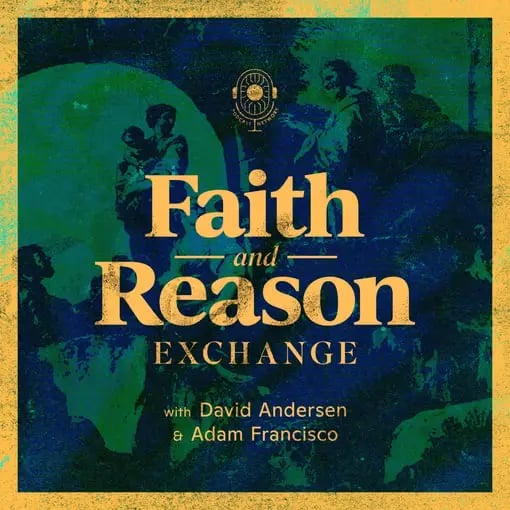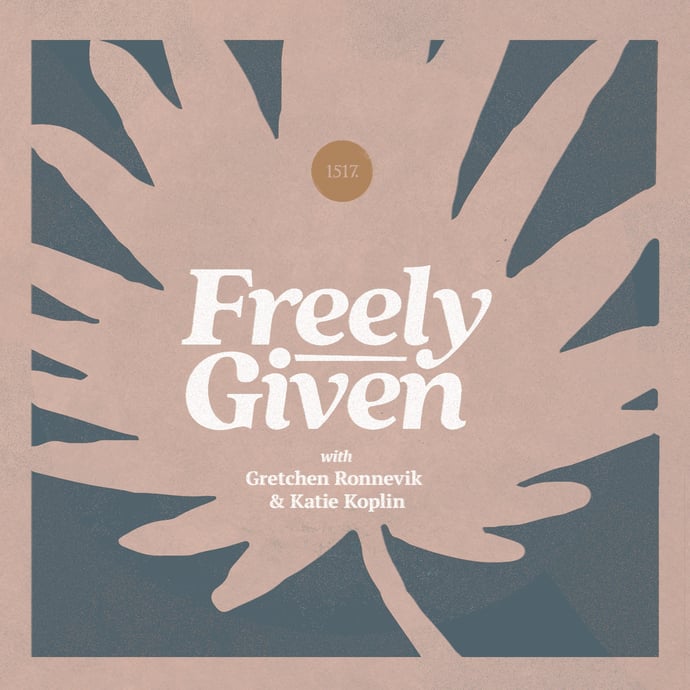David and Adam tackle the question: would the discovery of extraterrestrials falsify Christianity?
Podcasts
Each 1517 Podcast is dedicated to delivering Christ-centered content through weekly, monthly, and seasonal audio platforms. Listen online or on your favorite podcasting app.
Author
- All Authors
- Aaron Zimmerman
- Adam Francisco
- Amy Mantravadi
- Blake Flattley
- Bob Hiller
- Bradley Gray
- Brian W. Thomas
- Bror Erickson
- Bruce Hillman
- Caleb Keith
- Chad Bird
- Chris Rosebrough
- Christopher Gillespie
- Cindy Koch
- Craig Donofrio
- Dan van Voorhis
- Daniel Deen
- Daniel Emery Price
- Darrin Sheek
- David Andersen
- David Rufner
- David Zahl
- Debi Winrich
- Delwyn Campbell
- Donavon Riley
- Doug Klembara
- Edward Killian
- Elyse Fitzpatrick
- Erick Sorensen
- Flame
- Grant Klembara
- Gretchen Ronnevik
- Haroldo Camacho
- Jacob Smith
- Jared C. Wilson
- Jeff Mallinson
- Jeffrey Pulse
- Jessica Thompson
- Jim Nestingen
- Joel Fitzpatrick
- Joel Hess
- John Andrew Schreiner
- John Bombaro
- John T. Pless
- John W. Hoyum
- John Warwick Montgomery
- Katie Koplin
- Kelsi Klembara
- Ken Sundet Jones
- Magnus Persson
- Matt Popovits
- Michael Berg
- Michael Horton
- Nick Lannon
- Paul Koch
- Peter Nafzger
- Philip Bartelt
- Raleigh Sadler
- RJ Grunewald
- Robert Kolb
- Rod Rosenbladt
- Ron Hodel
- Sam Leanza Ortiz
- Sarah Condon
- Sarah Crowder
- Scott Davis
- Scott Keith
- Steven Paulson
- Tanner Olson
- Troy Neujahr
- Uwe Siemon-Netto
- Wade Johnston
- William Cwirla
-
The rest of Gretchen Ronnevik's interview with Nathan and Joy Hoff had a handful of technical difficulties, but the conversation was so rich that none of it seems to matter.
-
David and Adam discuss John Warwick Montgomery's essay, "The Theologian's Craft".
-
Ramble Tamble. In this episode, we do a pastor’s table talk that centers on inculcating a deeper appreciation for heavenly mystery and earthly reality: prayer at home, worship on vacation, the connection of the land to God’s judgment and salvation of his people, the early church’s exegesis, Genesis snd Revelation, and Logos theology that binds the Trinity and Creeds.
-
This is a heady but interesting and worthwhile episode. David and Adam talk about some of the basic ontological assumptions of science and the implications they have on theology and faith.
-
As Gretchen Ronnevik was with her family at Mount Carmel Bible Camp, she ran into her friends, Nathan and Joy Hoff who run an internship program in California for young adults at their church.
-
David and Adam discuss secularism and its challenges.
-
Kelsi chats with the Reverend Jacob Smith about the authority of Scripture - how we define it and what it means for us - both Christian and non-Christian.
-
David and Adam talk about Friedrich Nietzsche's parable of the madman and its implications for thinking about morality and ethics.
-
Do we have an obligation to find and furnish evidence for our beliefs?
-
David and Adam use an old Greek myth as the starting point for a conversation about confirmation bias and other shortcomings to understand and make sense of things.
-
We Can Be Heroes… In this episode, we discuss death and resurrection, hierarchy and authority, corporatism, Christian nationalism, self-sacrificial love, building a body without Christ as its head, the symbolism of salvation without the Lamb, pop culture tropes, the hero's journey, and teaching Christians not to doubt their salvation.



